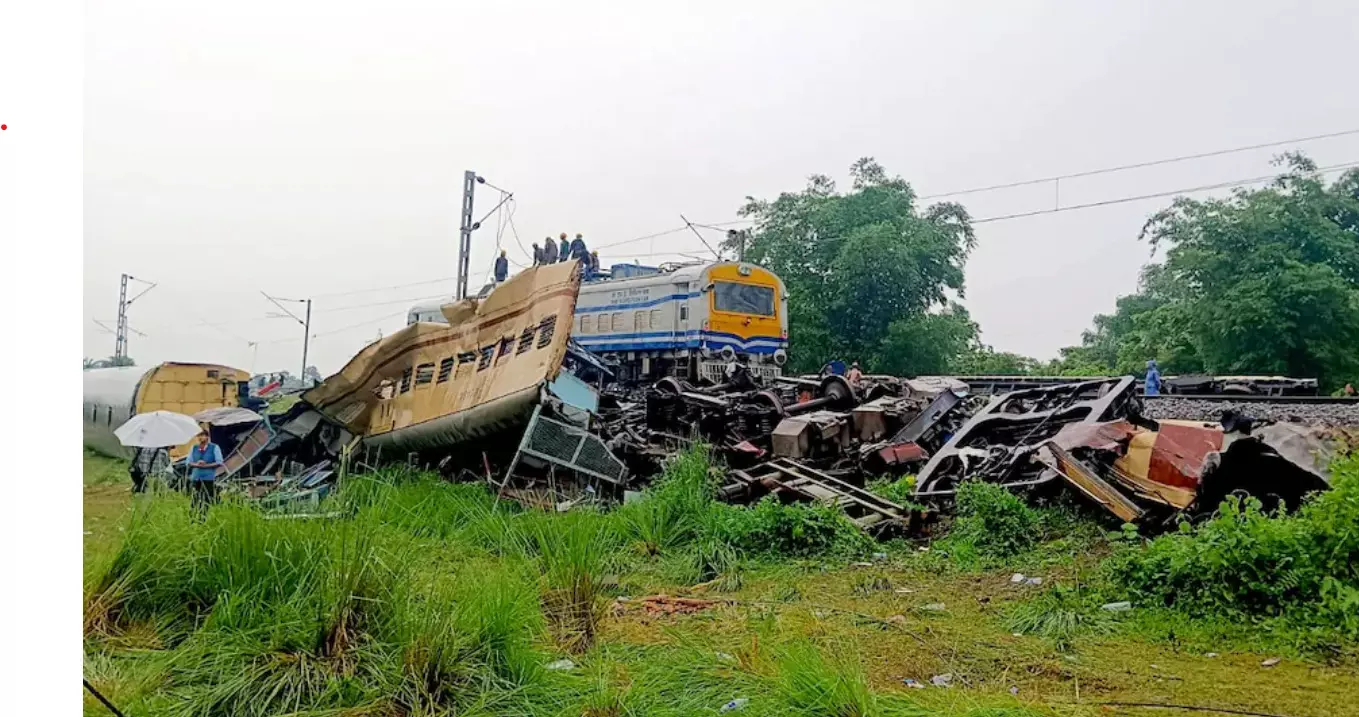Failure, again.

It will be tragically incorrect to dub the Kanchenjunga Express accident in West Bengal as a wake-up call. Such catastrophes have been rearing their ugly heads time and again—with no waking up of any sorts—in different parts of the country. Nothing striking can be expected from authorities in the aftermath of the accident. Compensations and condolences—that are never remotely enough—have been announced. The Union Railways Minister has visited and inspected the site. An investigation to trace the real culprit, which will be conveniently pushed into oblivion after some time, is underway. And the entire country is left speculating what the real cause of the accident is—human error or signalling defect? This is a question which is seldom answered in concrete terms, eventually.
The lethal collision between the Sealdah-bound Kanchanjunga Express and a goods train in West Bengal's Darjeeling district is, simply put, a recurrence of administrative failure. The accident has led to at least nine casualties, leaving 40 injured. Among the deceased were seven passengers, the loco pilot of the Amingaon-Jharsuguda goods train, and another railway staffer. Preliminary investigations indicate that the collision resulted from a combination of human error and a defective automatic signalling system. The goods train, operating under a defective signalling system, was issued a TA 912, authorising it to pass red signals under strict speed and safety conditions. However, the train exceeded the permissible speed, violating the safety protocol, which tragically culminated in the fatal crash. TA 912 is an essential safety protocol designed to maintain train operations during signalling failures while prioritising safety through strict guidelines.
West Bengal Chief Minister and former Union Railway Minister, Mamata Banerjee, came out harshly in criticising the Central government. The leader, who claims to know “A-Z” of the Indian railways, said: "The railways have become totally parentless. Though the ministry is there, the old glory is missing. Only beautification is being done, but they do not care about passenger amenities. They are only keen on hiking fares." Highlighting the failure of Indian railways in incorporating anti-collision devices—or Kavach—on an extensive scale, Mamata Banerjee further asserted, "When I was the Railways Minister, I saw 2-3 major train accidents after that I ensured that the anti-collision device was prepared and started. The collision of trains stopped. What is happening in the railways today, no one knows." The issue of installing anti-collision devices came under spotlight last year as well, after the Balasore train accident which witnessed 296 fatalities.
The questions raised by the West Bengal Chief Minister are pressing enough to deserve a responsible answer from the Union Railway Ministry on the issue of accountability. Unfortunately, the newly sworn-in Railway Minister, Ashwini Vaishnav, emphasised on relief and restoration work, indicating that politics should be kept aside for the moment. The relief and restoration work, along with investigation, is a natural follow-up to such incidents, and is already underway. Rather than sidelining the questions raised by the former Railway Minister on grounds of politicisation, the Union Railway Minister should promptly come out with a satisfactory response on the issue of accountability.
The Indian railways carries the burden of transporting a vast number of citizens across the length and breadth of the country. Modernisation in the sector cannot be limited to introducing flagship trains and refining the outlook of railway stations. Greater priority has to be given to leveraging technology to safeguard the lives of citizens. For the current dispensation, there is a lot to learn from the previous ones and global standards.



